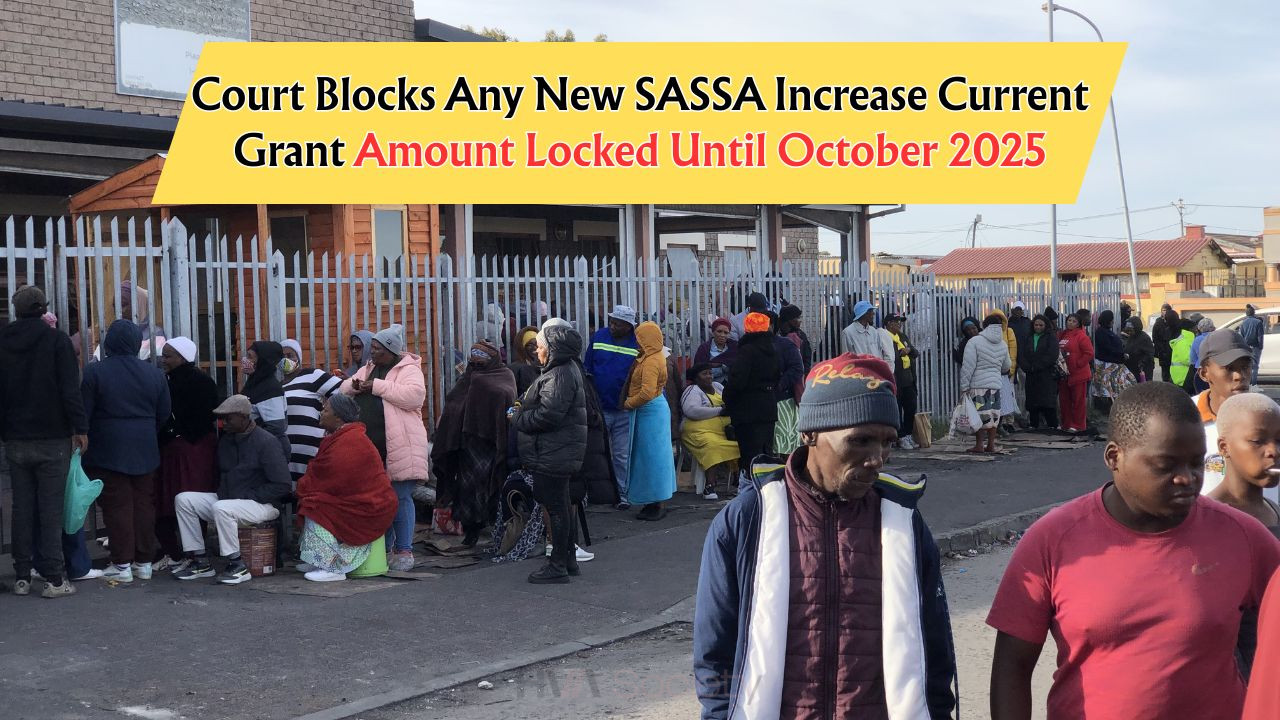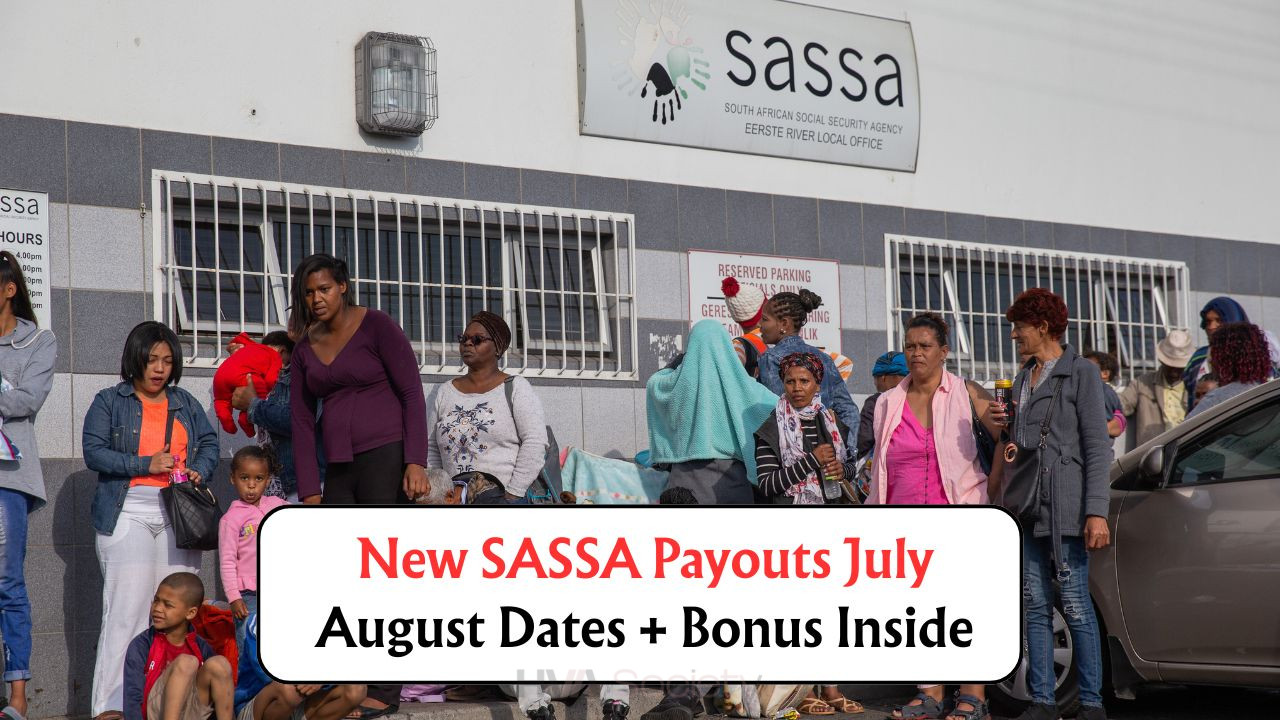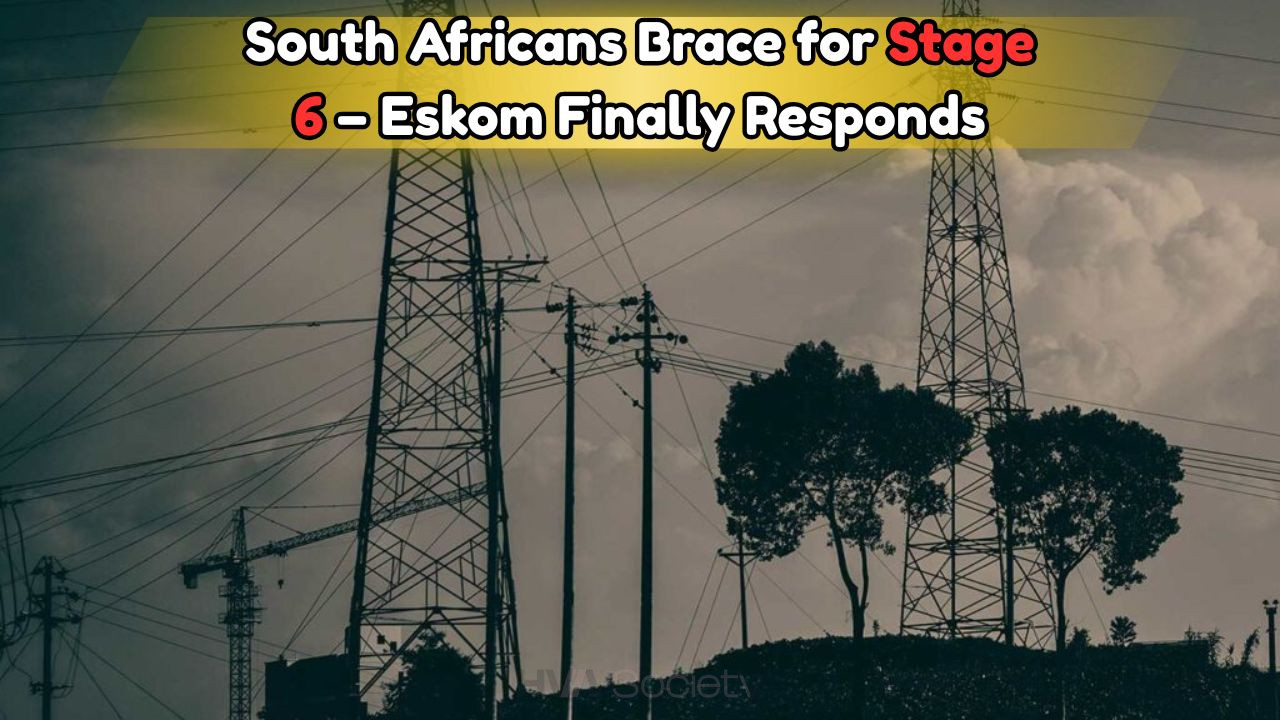Court Blocks SASSA Increase: The South African Social Security Agency (SASSA) has faced a significant setback as the courts have blocked a vital increase that many citizens were anticipating. This decision has pushed the possibility of any relief until October 2025, leaving countless South Africans grappling with financial uncertainty. SASSA, which plays a crucial role in providing social grants to millions, was expected to implement an increase to offset rising living costs. However, the recent court ruling has delayed this much-needed relief. With South Africa’s economic challenges, including high unemployment rates and increasing inflation, this delay has profound implications for those relying on government assistance. The blocked increase is set to affect various grant categories, impacting the most vulnerable, including the elderly, children, and individuals with disabilities.
Implications of the Delayed SASSA Increase
The delay in the SASSA increase has far-reaching implications for South Africans who depend on these grants for survival. Many households rely heavily on SASSA grants as their primary source of income. With inflation driving up the cost of basic necessities, the absence of an increase means that these households will struggle even more to make ends meet. The delay exacerbates existing financial pressures, potentially leading to increased poverty and inequality. Beneficiaries, who are already living on the edge, may find themselves unable to afford essentials like food, healthcare, and education for their children. This delay also highlights the broader economic challenges faced by the country and the urgency for policy reforms that address the root causes of poverty and unemployment.
- Increased financial strain on households
- Higher risk of poverty and inequality
- Potential rise in malnutrition and health issues
- Greater difficulty in accessing education and basic needs
- Increased demand for alternative support systems
Understanding the Court’s Decision
| Grant Type | Current Amount (ZAR) | Projected Increase (ZAR) | Delay Impact |
|---|---|---|---|
| Old Age Pension | 1,980 | 2,080 | Higher living costs |
| Disability Grant | 1,980 | 2,080 | Increased care expenses |
| Child Support Grant | 480 | 520 | Rising child care costs |
| Foster Child Grant | 1,070 | 1,120 | Educational needs |
| Care Dependency Grant | 1,980 | 2,080 | Special care requirements |
| War Veterans Grant | 2,000 | 2,100 | Increased medical costs |
| Grant-in-Aid | 460 | 500 | Additional living support |
| Social Relief of Distress | 350 | 400 | Emergency support needs |
Challenges Faced by SASSA Beneficiaries
Beneficiaries of SASSA grants are set to face numerous challenges due to the delayed increase. These grants often serve as a lifeline for many, providing essential support that covers basic living expenses. The delay means that beneficiaries will have to stretch their already limited resources even further. For many, this could mean making difficult choices between buying food or medicine, or paying for transport to access essential services. The lack of an increase also means that beneficiaries will not have the financial buffer they need to cope with unexpected expenses, such as medical emergencies or sudden changes in living circumstances. The delay in relief further undermines the financial stability of households, pushing them deeper into debt and making it harder to break the cycle of poverty.
 SASSA Announces Early July–August Grant Payments and Bonus Payouts for Eligible Beneficiaries!
SASSA Announces Early July–August Grant Payments and Bonus Payouts for Eligible Beneficiaries!
- Limited ability to cope with rising costs
- Increased reliance on debt and loans
- Difficulty in accessing essential services
- Heightened vulnerability to financial shocks
- Strain on mental health and wellbeing
Why the SASSA Increase is Critical
The SASSA increase is critical for many reasons, chief among them being the alleviation of poverty and enhancement of living standards for millions of South Africans. The proposed increase aimed to provide beneficiaries with extra financial support to meet the rising costs of living. For those reliant on these grants, even a small increase can make a significant difference in their daily lives. The funds help cover essential expenses such as food, clothing, healthcare, and education. Without this increase, the gap between income and necessary expenditure widens, leaving many vulnerable to poverty. A delay in the increase means prolonged hardship for beneficiaries who are already struggling to cope with the financial burdens of everyday life.
| Allocation | Current Level | Proposed Level |
|---|---|---|
| Food | 30% | 35% |
| Healthcare | 20% | 22% |
| Education | 15% | 18% |
| Utilities | 10% | 12% |
Future of Social Grants in South Africa
The future of social grants in South Africa remains uncertain amidst economic challenges and policy shifts. As the government navigates financial constraints and increasing demands for social support, finding sustainable solutions becomes critical. The delay in the SASSA increase highlights the need for comprehensive policy reforms that can secure the future of social grants. These reforms should focus on enhancing the efficiency and reach of the social security system, ensuring that it can adapt to changing economic realities and continue to provide meaningful support to those in need. Additionally, there is a need for greater transparency and accountability in the management of social grants to restore trust and ensure that beneficiaries receive their rightful support.
- Developing sustainable funding models
- Enhancing efficiency of grant distribution
- Improving transparency and accountability
- Adapting to economic changes and demands
FAQs on the SASSA Increase Delay
What is the reason for the delay in the SASSA increase?
The delay is due to a court ruling that has blocked the proposed increase until October 2025.
How does this affect SASSA beneficiaries?
Beneficiaries will not receive the anticipated financial relief, exacerbating their financial hardships.
What is the government’s response to this situation?
The government is exploring options to address the court’s decision and provide support to affected beneficiaries.
Are there any alternatives to support beneficiaries in the meantime?
Community support networks and non-governmental organizations may offer temporary relief.
How can beneficiaries prepare for the delay?
Beneficiaries are encouraged to explore budgeting strategies and seek community support where available.








